Le Palais Idéal
This whimsical castle of grottoes was the labor of love of a French postman, and one of the greatest achievements of outsider architecture.
From far away this palace looks like a cross between a temple of Angkor and La Sagrada Familia, but up close it’s much like a Monet painting with small pebbles and stones replacing the intricate brush strokes. Pillars, flying buttresses and grottoes carefully crafted of found stones form the 26 meters long and 10 meters high “Palais Idea”.
Ferdinand Cheval (1836-1924), a French postman, began work on his dream palace in the late 19th century. As the story is told, Cheval tripped on a rock in 1879 along his mail route, picked it up and was so fascinated by its peculiar shape that he was inspired to build the imaginative palace.
Coming from humble beginnings, Cheval had minimal formal education and no architectural experience, however, he was self-educated with help from the Le Magazin Pittoresque. Over the course of 34 years he enduring the criticism and mockery of his neighbors as he continued building. Pushing a wheelbarrow along his expanded mail route of 42km, he collected stones and he completed the building with no outside help. The criticism eventually turned into admiration, and tourists began flocking to Hauterives to see the Palais Idéal.
The architecture is inspired by different styles and eras, mingling together Chinese, Algerian and Northern European influences to create a fantastic and completely original castle of grottoes. “You start wondering,” the postman wrote of his palace, “if you have not been carried away into a fantastic dream with boundaries beyond the scope of imagination.” The fantastic dream brought to life in Le Palais Ideal is completed by fanciful statues resembling ostriches, elephants and bears.
Cheval wanted to be buried in his palace, and when French authorities forbade it, he spent the next decade constructing his own magnificent vault in the local cemetery at the age of 80. Inscribed in the palace walls is Cheval’s message to the world: “I was not a builder, I had never handled a mason’s trowel, I was not a sculptor. The chisel was unknown to me; not to mention architecture, a field of which I remained totally ignorant… Everything you can see, passer-by, is the work of one peasant, who, out of a dream, created the queen of the world…”
Know Before You Go
30 miles south of Lyon, in the small town of Hauterives, where the D51 and D538 meet. Municipal Transportation: From Gare SNCF of St Vallier sur Rhône. Public transports From the SNCF station to Saint Vallier sur Rhône Take a bus connecting Saint Vallier to Hauterives (about 30 min of travel time). See bus timetable Taxis Vallon - Tel. +33 (0)4 75 23 23 23 (preferential tariff up to 7 persons) From Romans sur Isere’s station Take a bus connecting Romans sur Isère to Hauterives (about 30 min of travel time). See bus timetable Order a taxi : Taxis Dromois - Tel. +33 (0)4 75 05 15 05 (preferential tariff up to 7 persons) Taxi to Hauterives Taxis of the Haute Galaure - Tel. +33 (0)4 75 68 80 52 / +33 (0)06 07 84 86 13 The cemetery is a short distance away, just under a mile, within walking distance. It is advised to check website for events, as there are often concerts taking place in the evenings.

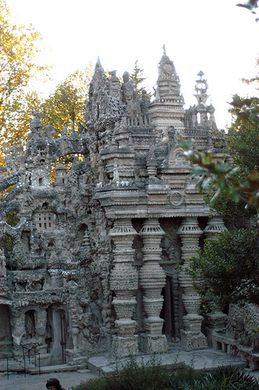
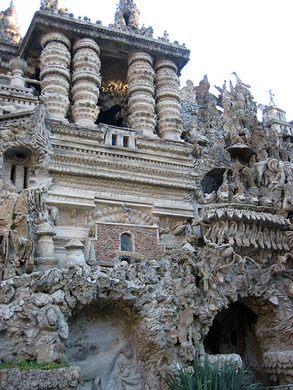
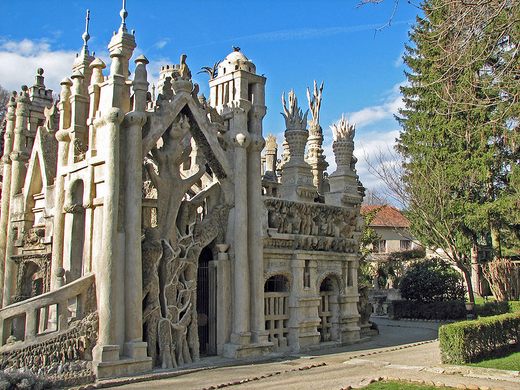

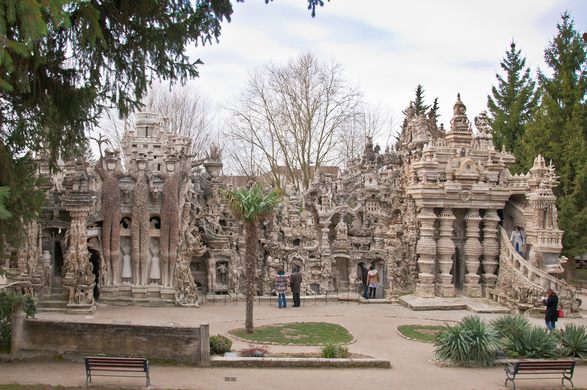
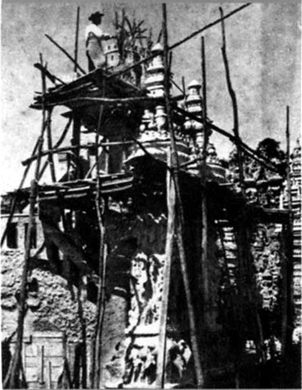
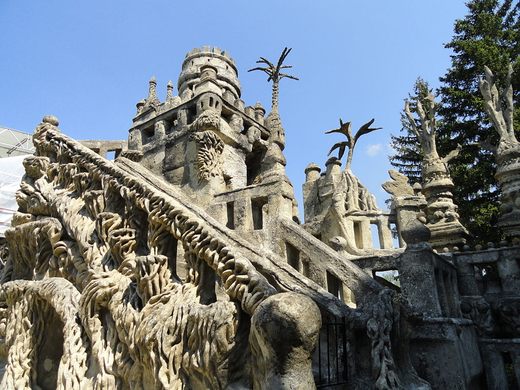
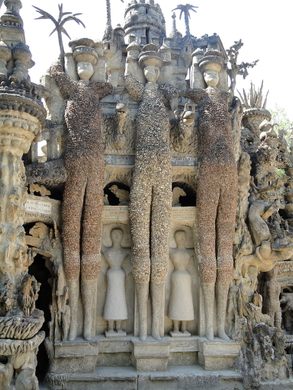


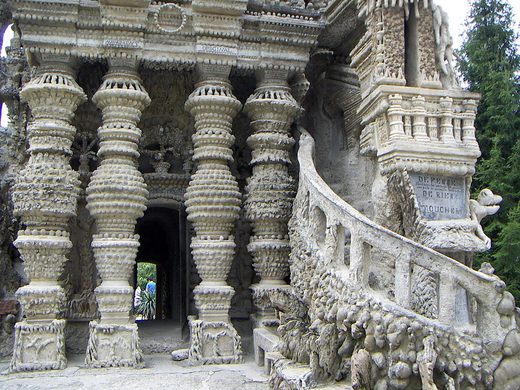

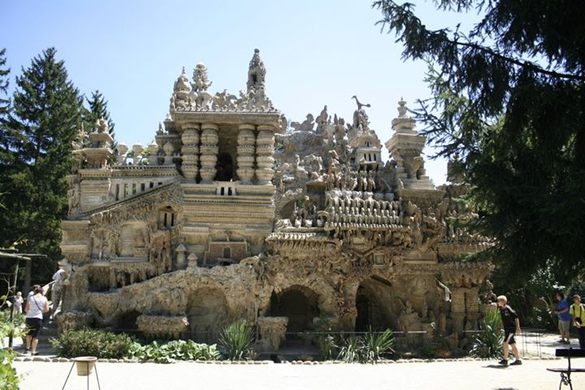
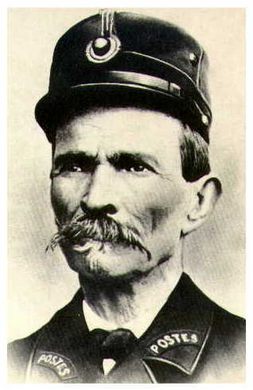










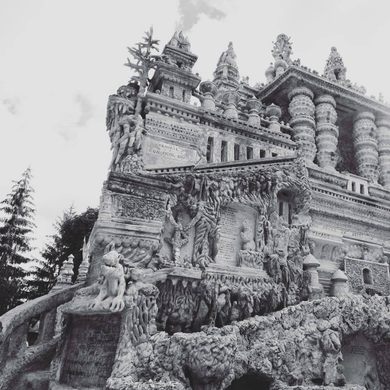
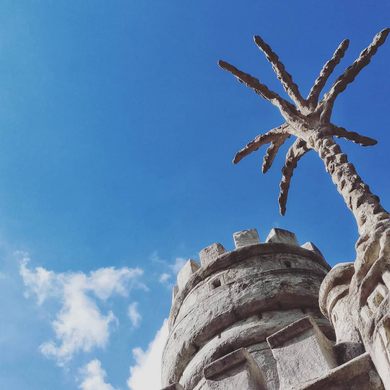



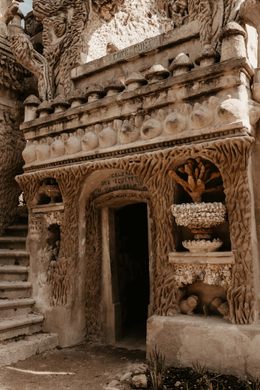



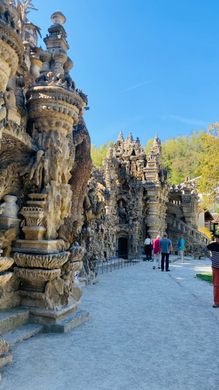
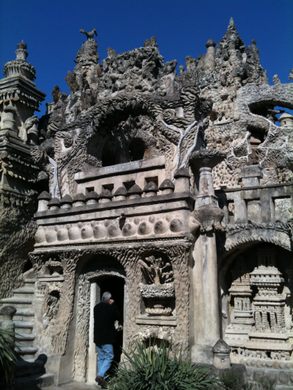
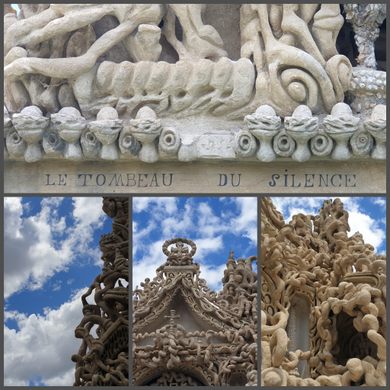
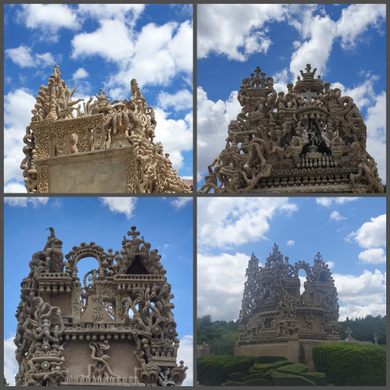
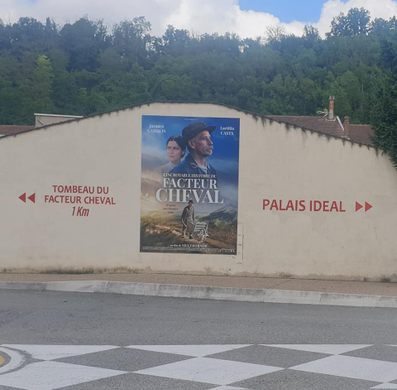
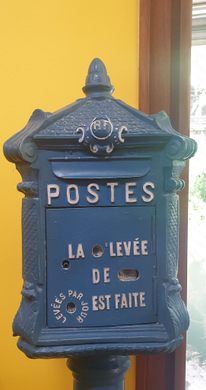


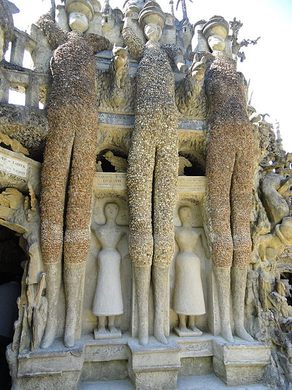






















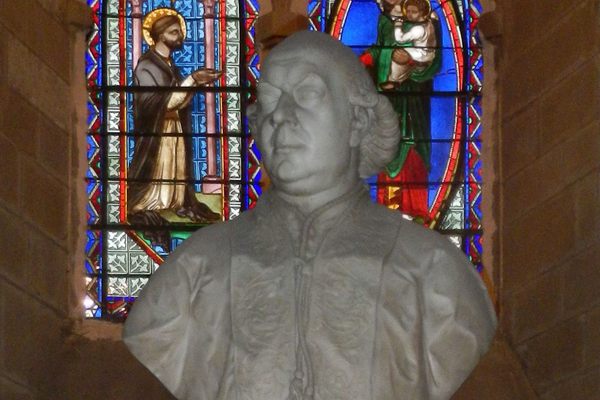







Follow us on Twitter to get the latest on the world's hidden wonders.
Like us on Facebook to get the latest on the world's hidden wonders.
Follow us on Twitter Like us on Facebook